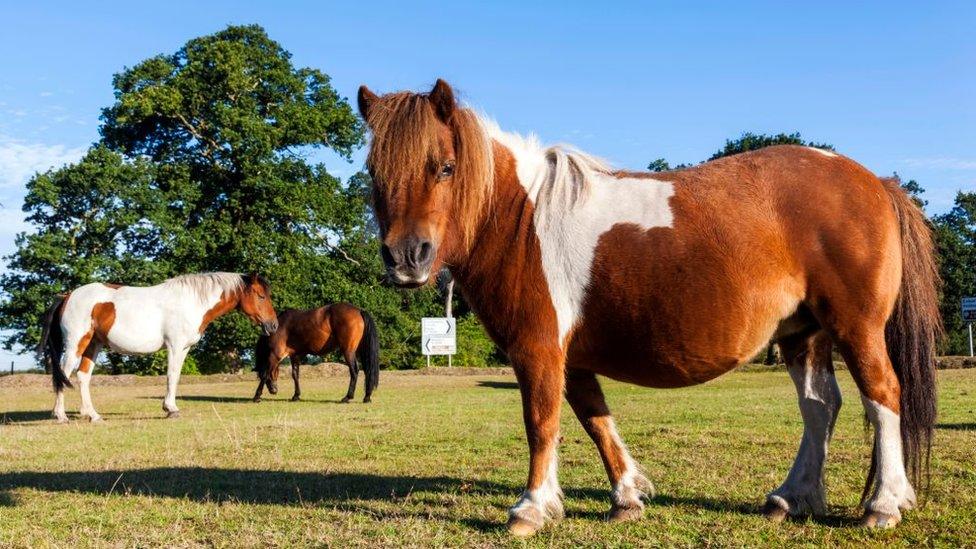New Forest: Restoration work planned for Hatchet Pond after visitor influx
- Published
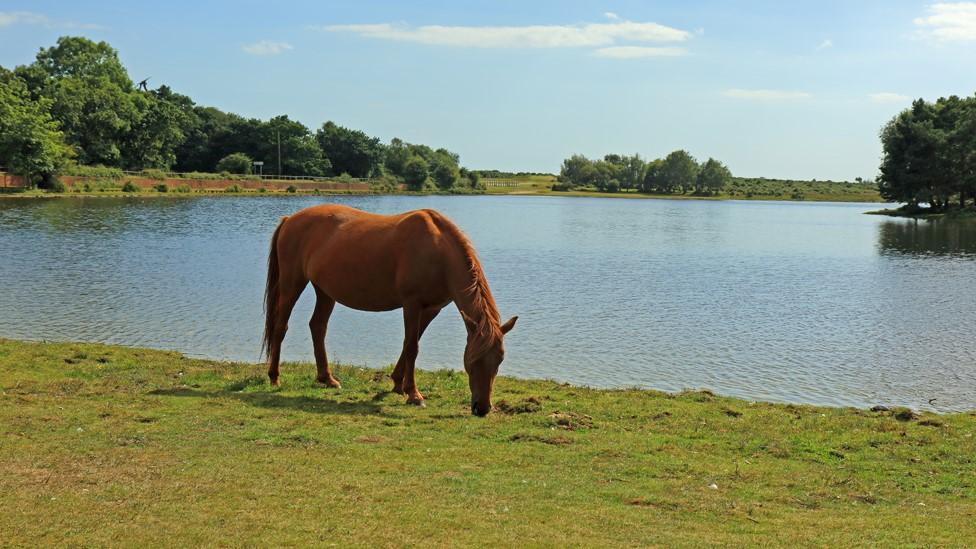
Hatchet Pond is a shallow lake surrounded by heathland in the New Forest National Park
One of England's most important wildlife sites is to undergo restoration work after damage caused by visitors during the summer.
Hatchet Pond in the New Forest is home to some of the rarest wetland plants and freshwater animals, now in decline.
Toilets will be removed and the car park relocated as part of a scheme to prevent pollution.
Forestry England said the pond had experienced "unprecedented pressures" due to the influx of visitors.
The pond was created more than 200 years ago and is home to a third of all species of wetland plants found in the UK and many freshwater insect species.
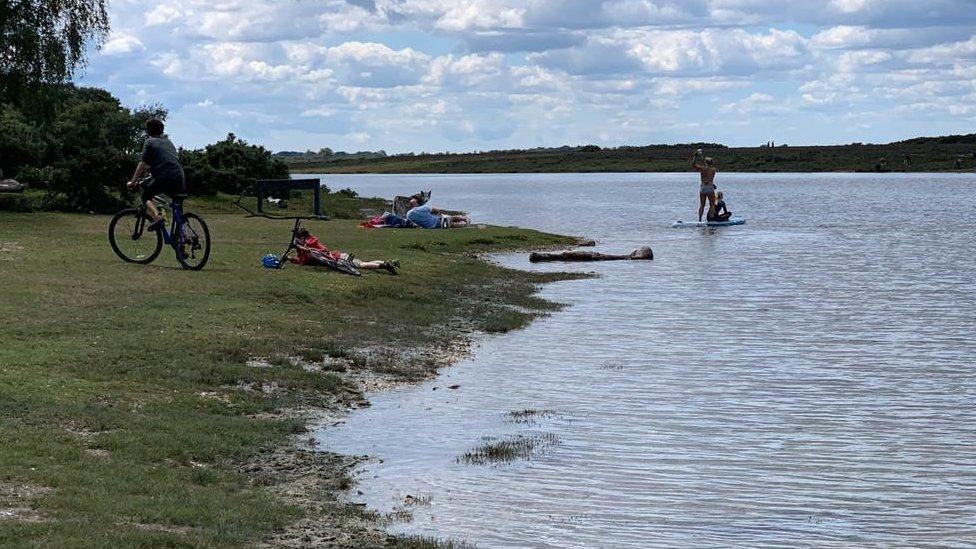
Damaging activities such as paddle boarding, wild camping and barbequing were reported at the lake during the summer
Forestry England said analysis of the pond - the New Forest's largest body of fresh water - showed water quality, and plants and wildlife that rely on it, were in decline.
It said pollution was caused by a sharp rise in people and animals entering the water, drainage from the car park as well as large amounts of material being thrown in to feed birds and bait fish.
The New Forest's car parks were closed during the lockdown but the warm weather led to an influx of visitors when the restrictions were eased.
In a joint statement outlining measures, Forestry England, the Freshwater Habitats Trust and Natural England said problems had reached a "critical point".
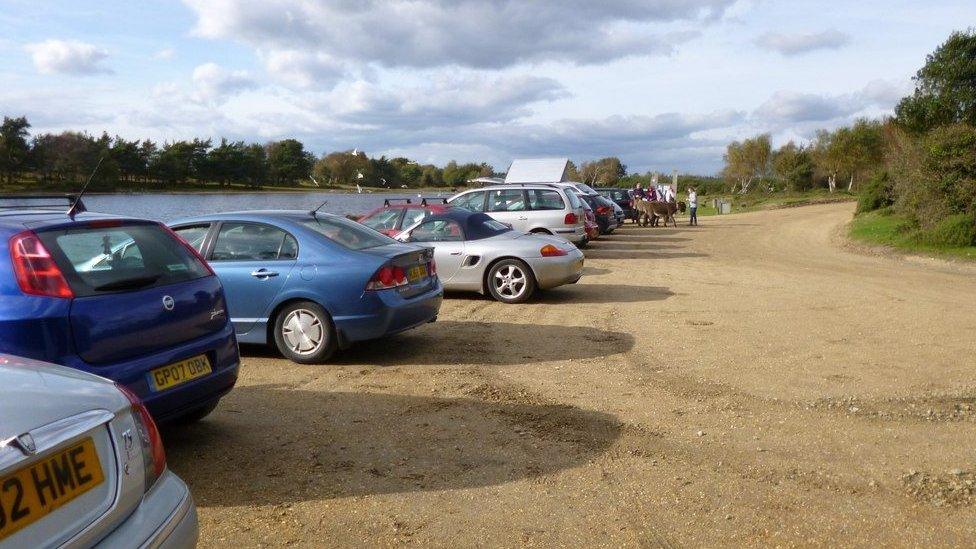
The car park is set to be relocated away from the edge of the pond
Plans include removing the toilet block as a potential source of pollution and relocating the car park away from the edge of the pond.
Dr Naomi Ewald from Freshwater Habitats Trust described Hatchet Pond as "a unique and special place".
"There are no other waterbodies in lowland England which support the same number of plants and animals.
"Once lost, it will not be possible to recreate a site as good as this, so we need to take action now," she added.
- Published3 June 2020
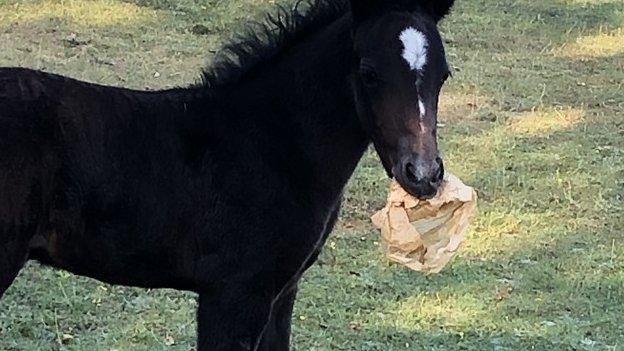
- Published30 May 2020
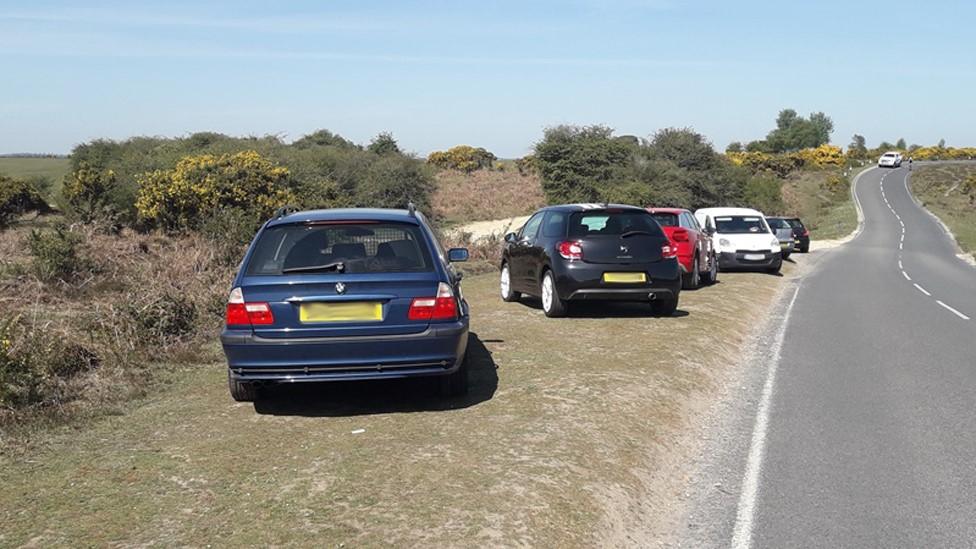
- Published25 June 2019
